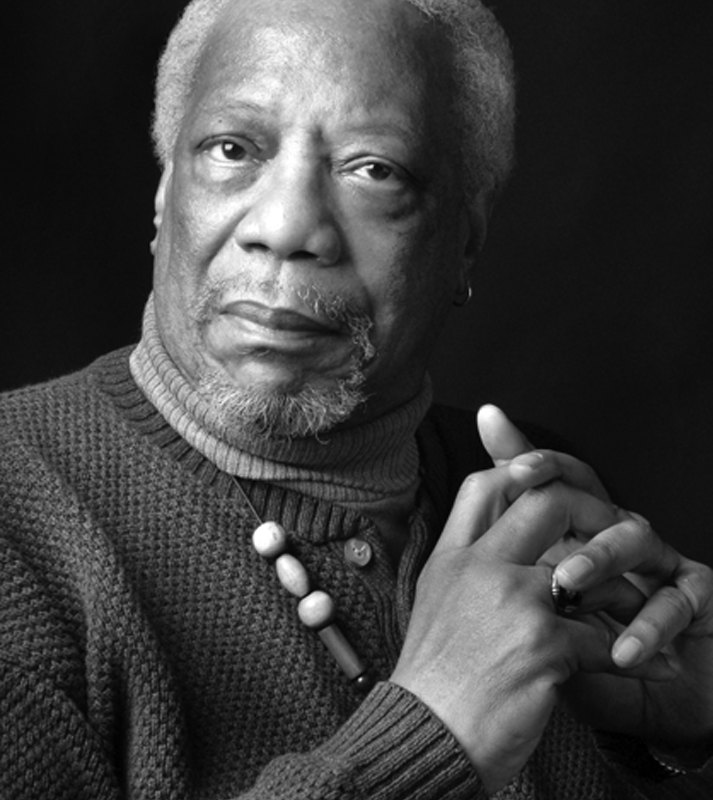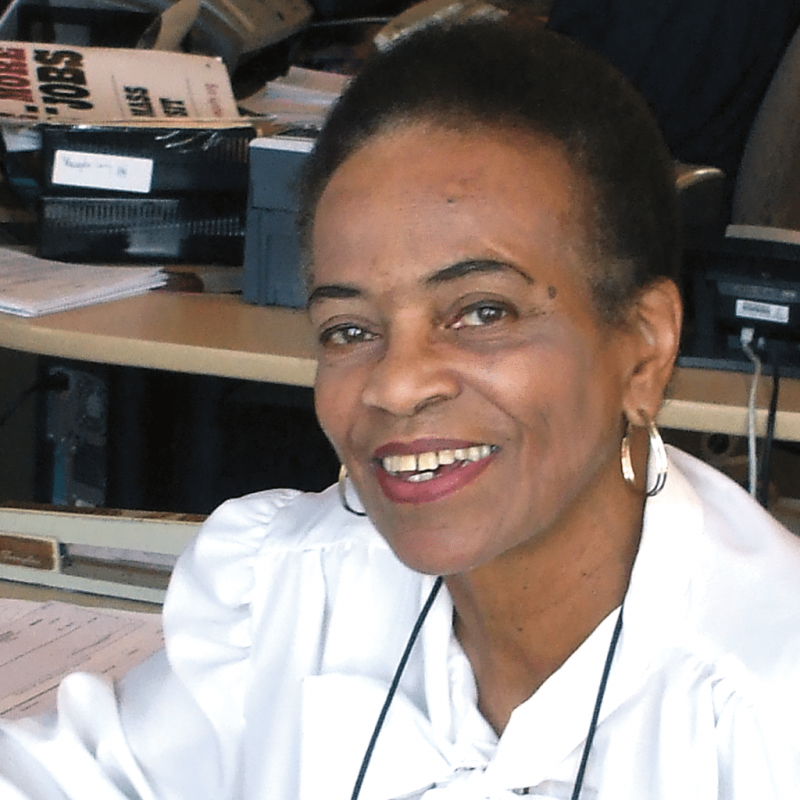
Poem for the Saint Paul City Council
2013
The New Year, with its dependable timing, its greeting full of bells and whistles and promises, has arrived. We stand, once more, at a new beginning.

Hats Off to Larry Ho: Saint Paul Poet and Politician
2013
Laurence “Larry Ho” Hodgson (1874–1937) was a unique combination of poet and politician, a prolific writer who produced thousands of poetic and prose works.

All Aboard!
2012
My dad James Melvin Young Sr. became a second generation “Red Cap Porter” when his uncle William A. Young retired circa 1949. Melvin was 23 years old when the Saint Paul Union Depot at 214 Fourth Street in Lowertown was the gateway to the world. Working there was the spark that ignited a love for world travel for my dad. There were approximately thirty-six Red Cap Porters employed at the Depot, all African American. Their red caps became synonymous with integrity and reliability. Their work was demanding.

The Brawl in Saint Paul
2012
During the Civil Rights movement, most youth felt that the leadership of their community was inadequate and didn’t speak to their concerns, and therefore they would “take matters into their own hands.” Little did they realize that their methods and tactics were causing more problems than they were solving, that they had the effect of polarizing the community; as a result, there were constant disputes and conflicts, stemming from those who thought they knew the most about what to do, how to do it, and who would do what about the problems that were plaguing the community.

My Dad’s Love for His Parks
2012
My dad, William LaMont Kaufman, was superintendent of Saint Paul Parks for thirty-four years. He dearly loved his job, and because he did, approximately one-third of our childhood was spent in his beloved parks. Como, our favorite, offered so much to children as well as to adults. Our dad taught us the name of each plant in the conservatory and the outside gardens, not only in English but also in Latin. Many Sunday nights were Como Nights, when we sometimes brought a picnic and raced to find Dad’s name on plaques in the zoo and conservatory. But his love for Como extended to other parks: Harriet Island, Phalen, Highland, and his smaller treasures—Hidden Falls, Rice, Irvine, Kellogg, Lilydale, Indian Mounds, Mears, and Newell, among others.

Oreo Cookie
2012
I am proud to make Saint Paul my home, as I feel the African American people of Saint Paul are strong, proud people. The first sixteen years of my life were spent in Minneapolis in a poor White neighborhood. My siblings and I were the only Black children in the schools we attended. Yes, there was a great deal of prejudice in our community. Little children don’t know hate; they have to be taught. Even though my White friends’ parents may not have liked their children being friends with us, most of them accepted it because they loved their children more than they hated us.

How Max Shulman Got to College
2012
Max Shulman (1919–1988) grew up in a Jewish community in Saint Paul’s Selby-Dale neighborhood. After graduating from Central High School, he earned a journalism degree from the University of Minnesota. His writings were invariably humorous and were published in novels and magazines. He eventually became a successful writer for theater and television. His novel Potatoes are Cheaper was a portrayal of life in the city in the late 1930s. Extract from Max Shulman, Potatoes Are Cheaper (Doubleday and Company, 1971): 1–4, 23.

Life in the United States and Life in My Country
2012
When I arrived at the airport my sister and her family came to the airport to pick up my family, and when I saw them, they said “Welcome to Saint Paul.” My first surprise was the snow. Before I came to the United States, I heard people talk about snowfall. I thought, if I go to America, I will eat snow and I don’t need to do anything—just put it in a cup and mix it with sugar and milk, and then we can eat it, because in my country we eat ice a lot in the summer. But in the U.S., no one eats snow.

Radio Crew
2012
Although I live in Minneapolis, I have a strong connection to Saint Paul. When I worked as a legal secretary in downtown Saint Paul, I could see across the Mississippi from my twenty-second-floor window to where my mother, Ione, worked in 1943 during World War II: Holman Field. Born in Spicer, Minnesota, Ione moved to Minneapolis in her early twenties. During the war, she had a long commute from North Minneapolis to her job in Saint Paul: A bus took her to downtown Minneapolis, then a streetcar brought her to downtown Saint Paul, and a shuttle carried her across the Robert Street Bridge to the Northwest Airlines Modification Center, where she worked on a radio crew for the B-24 bomber plane known as the Liberator.

My Mother’s Garden
2011
Her garden, growing on Germain Street, needed just as much as a baby, every bit of her attention, love, and care. We moved so many times. The house on Germain was the fourth we moved into, but not the last. The backyard of this house was a bit narrow and long and even had a little hill that led to a small woodsy area. Almost every day from spring until early fall, my mother came home to her garden ready to care for it. She threw on her black short-sleeved shirt, navy blue shorts, size five black Old Navy sandals, and a pair of yellow rubber gloves.

Gordon Parks Recalling 1920s Rondo
2011
Gordon Parks was an acclaimed artist who confronted poverty and racism with such creative grace that he became an internationally admired cultural icon long before his death in 2006 at age ninety-three. An accomplished photographer, writer, composer, musician, and film producer and director, Parks was born in Fort Scott, Kansas, in 1912, and later moved to Saint Paul, where he spent his formative years. His memoir, A Choice of Weapons, which describes his experiences from 1928 through 1944, was first published in 1966 and reissued in 1986 and 2010 by the Minnesota Historical Society Press.

Remembering Katie McWatt through Arthurs’ Words
2011
Katie McWatt was about thirty-three years old when she ran for Saint Paul City Council: In March 1964, civil rights activists Reverend Denzil Carty, Kwame McDonald, and Alpha Adkins convinced Katie McWatt to run for a seat on the St. Paul City Council. There had never been an African-American on the Council in the history of the City. Her experience as an advocate for improved educational opportunities, the hiring of more African-American school staff, lobbyist for non-discrimination in housing, employment of African-Americans in the building trades and a dedication to social justice were critical issues for McWatt.